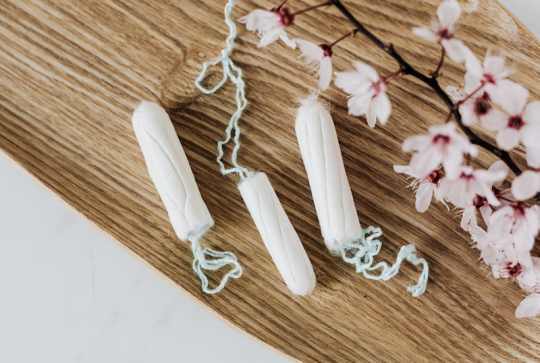Taboo, stigma and superstition: menstruation in 21st century Poland

Menstruation is a natural biological process that affects nearly half of the world’s population for half of their lives. Yet, millions of women around the world are humiliated, stigmatized and socially excluded because of their menstruation, and many cannot afford to buy the necessary sanitary products.
It is estimated that a woman menstruates 350 to 480 times throughout her life. She bleeds for between 3 and 7 days, which is about seven to nine years, and 10-13 % of her life. During this time, a woman uses more than 100 kg of sanitary pads / tampons (i.e. more than 10,000 products are used by each woman). Limited access to sanitary products often means that women have to choose between their health and dignity and providing food for themselves or their family.
"(...) I really couldn't afford the sanitary pads because I had to buy everything else which I needed for my child. I had a small child then, and I had to think about her, not about myself. I was using what I could." - says one of the respondents.
The problem of period poverty concerns women all over the world, even those who live in the most developed countries. It is present in Poland. As our research on menstruation shows, every fifth Polish woman sometimes cannot afford to buy appropriate sanitary products.
In addition, menstruation is still a taboo. Publications showing menstruation in a real and realistic way arouse controversy and disgust, even among women themselves. Over the years, advertising spots that talked about menstruation have put discretion first, confirming the feeling that menstruation is something that should be hidden from the world.
"I don’t know if my mum ever talked about it. I don’t know when she stopped menstruating, it was never a topic of conversation. When I was a child, this topic did not exist, you simply wouldn’t talk about it."- - says one of the respondents.
42% of the women surveyed admitted that in their family home menstruation was not spoken about at all. Despite the declared acceptance of menstruation, for many women it still remains a shameful topic, which they are reluctant to talk about.
Such constraints observed among adults are reflected in children's attitudes. Lack of communication, mothers hiding their sanitary pads, and silence about menstruation cause fear and sometimes lead to traumatic experiences among adolescent girls.
"I was afraid of everything, I did not really know what menstruation was. I knew it existed but not much more beyond that. (...) " - says one of the respondents.
The experience of the first menstruation is often full of shame, anxiety, and loneliness. Every third teenager is unprepared for her first period. It is not often talked about, and the way that mothers prepare their daughters for their first period is usually inadequate.
In Poland, there are still many myths and stereotypes about menstruation that encourage erroneous beliefs amongst both men and women, thus perpetuating their harmful attitudes towards the subject. As shown by our research, as many as 30% of women think that they cannot get pregnant while menstruating, and every fifth woman believes that she should not bake cakes or pickle cucumbers when she has a period.
Why is the lack of education and conversation about menstruation such a big problem?
Taboo at home, gaps in education among young people, and jokes from peers result in girls not accepting their bodies, their femininity and sexuality. At the same time, these factors shape attitudes that will prevail in their adulthood. In some cases, lack of access to sanitary pads means that girls do not go to school when they have a period, which may affect their education as well as their career opportunities in the future.
During COVID-19, most activities are directed at fighting the pandemic. It is, however, worth emphasizing that women still menstruate during a pandemic! Unfortunately, the economic situation of many women has deteriorated. Problems with access to sanitary products are now even more pronounced, and thus even more important.
About the study:
The study employed qualitative and quantitative research methods and was carried out in February 2020 in Poland by Difference. The quantitative analysis was based on survey responses of nearly one and a half thousand participants, including teenagers, adult women, and men. The qualitative analysis was based on the opinions of over 90 participants, including experts, teenagers, and adult women. The study presents an analysis of period poverty and period exclusion from an economic, social, and educational perspective.
Research findings are available here:
Report - PDF file
If you would like to receive the full version of the report, please contact us.
Kulczyk Foundation’s projects aim to promote education about menstruation and to ensure access to sanitary products for women:
Graphics: Marta Frej

